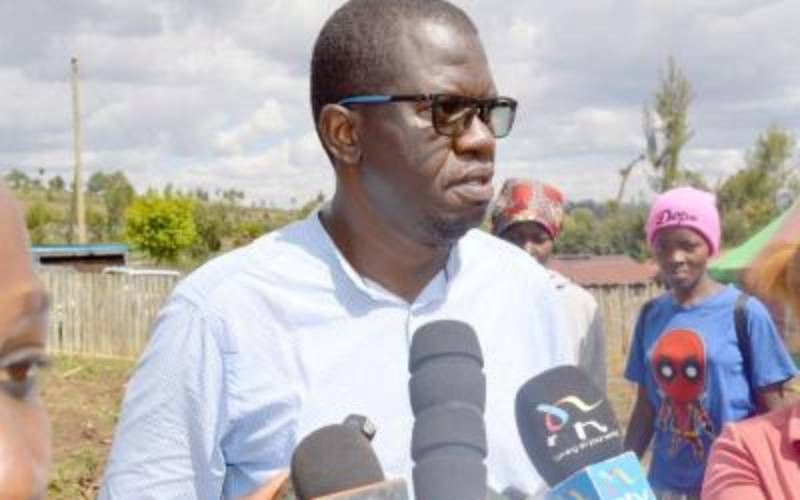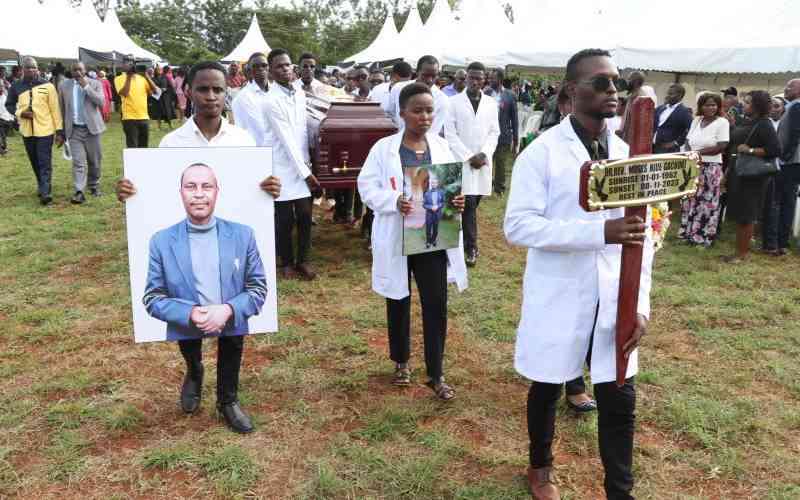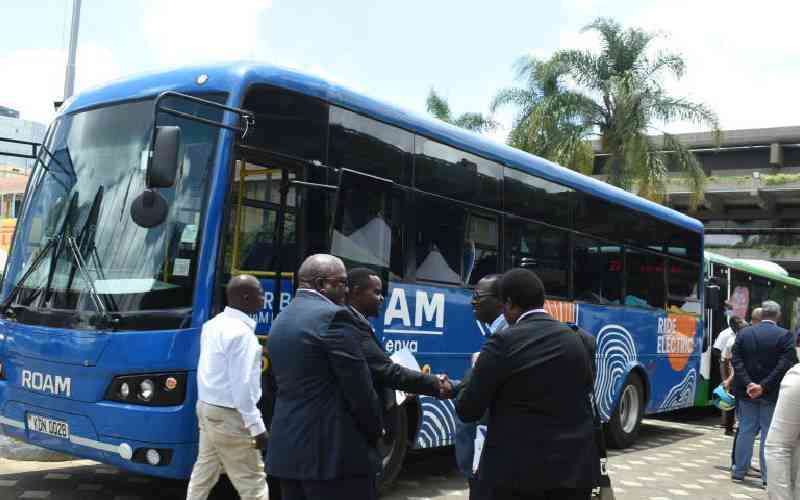Kenya: She navigates the world with the excitement and determination of a child. A resolve fostered in a small village in Gem, Siaya County, where Emily Rogena had an early exposure to education from watching her father, Jason Ojwang’, host pupils from poor and distant backgrounds.
Today, Prof Rogena is making it happen for young avid learners through a community resource centre at the heart of the village that moulded her into one of the top forensic pathologists in this country and women achievers in the field.
“We opened our home to pupils from other villages who couldn’t attend school either because their parents couldn’t afford fees or they lived far from school. We learnt that education was the only way to fight a dull poverty-stricken future,” she remembers.
She traces her passion to giving back to society to her parents who at an early age sent her on an educational sojourn in Nakuru at her aunty’s and only returned to the village during the school holidays to rejoin the many pupils under her father’s mentorship.
Rogena is an associate professor of Anatomic Pathology at the University of Nairobi, works as a private forensic pathologist handling death inquests and has over the years also participated in investigations of various disasters.
In recent times, she was the family pathologist during the probe of the death of Makueni Senator Mutula Kilonzo, Senator Otieno Kajwang’ and CORD leader Raila Odinga’s eldest son Fidel Castro, yet this perpetual engagement involving both prominent and ordinary Kenyans has not only borne a woman tough and intricate in her job, but one with a humble spirit too.
Her early years at Mount St. Mary’s Girls Primary School prepared her for multi-cultural engagements which are quite common today in her practice as a lecturer, forensic pathologist, volunteer, wife and mother.
Years later, a heart for science and an understanding of how the human body works revealed precise surgical operations during her training as a medical doctor at the University of Nairobi in 1984, nurturing her passion in a rare medical field.
DEATH CERTIFICATES
Her finger dexterity saw her through the subsequent trainings in human and forensic pathology and as Kenya joins in marking International Women’s Day, she is optimistic that determination and dedication to a particular field is the recipe for success for the modern woman.
Themed, ‘Make It Happen,’ Rogena appreciates that Kenya is warming up to women taking up decision-making and attitude-influencing positions in the country and can be made possible through deliberate mentoring programmes.
As a forensic pathologist, she is tasked with performing postmortems, gathering evidence on a person’s cause of death by submitting samples of body tissues and fluids for laboratory examination and preparing detailed reports, signing death certificates and giving testimony at inquests and courts.
On Tuesday at the Fourth African Society of Forensic Medicine Conference, Rogena presented a comparative analysis of the death investigation systems in Kenyan, British and Scottish systems, hoping to inform the setting up of a local one to improve the standards of forensic medical science services.
In the next one year, she envisions a country that can independently train her own forensic pathologists to serve the growing 40 million populations in a field that is increasingly becoming competitive, yet critical to a country’s development.
Stay informed. Subscribe to our newsletter
Besides being a lecturer, Rogena is also passionate on the causes of disease and is currently part of a three-year study looking at the causes of death in children aged below five and this will inform medical practice on reasons some Kenyan children are not surviving beyond this critical age.
“As a mother, it is equally sad to lose your child thus we are hoping that after we have completed the study of 200 children, we will publish our findings that can thereafter be used to formulate national guidelines on child health based on the current healths risks,” she said in an interview.
Currently, she is part of a national team tasked with the setting up of an efficient death investigation system which are discussions contained in the National Coroner Service Bill.
“We should have state-of-the-art forensic services and this will speed up investigations, lead to prosecution thus deliver justice to persons and families afflicted,” Rogena added.
She draws inspiration from one of her lecturers, the current chairperson of the Department of Human Pathology, Prof Grace Kitonyi, who through passionate and pictorial presentations brought pathology classes to life.
“She was so elaborate in her teaching that you barely required foraging the books to understand the concepts. She has a keen ear for both staff and students and she is the epitome of women who are making it happen,” she said.
 The Standard Group Plc is a
multi-media organization with investments in media platforms spanning newspaper
print operations, television, radio broadcasting, digital and online services. The
Standard Group is recognized as a leading multi-media house in Kenya with a key
influence in matters of national and international interest.
The Standard Group Plc is a
multi-media organization with investments in media platforms spanning newspaper
print operations, television, radio broadcasting, digital and online services. The
Standard Group is recognized as a leading multi-media house in Kenya with a key
influence in matters of national and international interest.
 The Standard Group Plc is a
multi-media organization with investments in media platforms spanning newspaper
print operations, television, radio broadcasting, digital and online services. The
Standard Group is recognized as a leading multi-media house in Kenya with a key
influence in matters of national and international interest.
The Standard Group Plc is a
multi-media organization with investments in media platforms spanning newspaper
print operations, television, radio broadcasting, digital and online services. The
Standard Group is recognized as a leading multi-media house in Kenya with a key
influence in matters of national and international interest.








